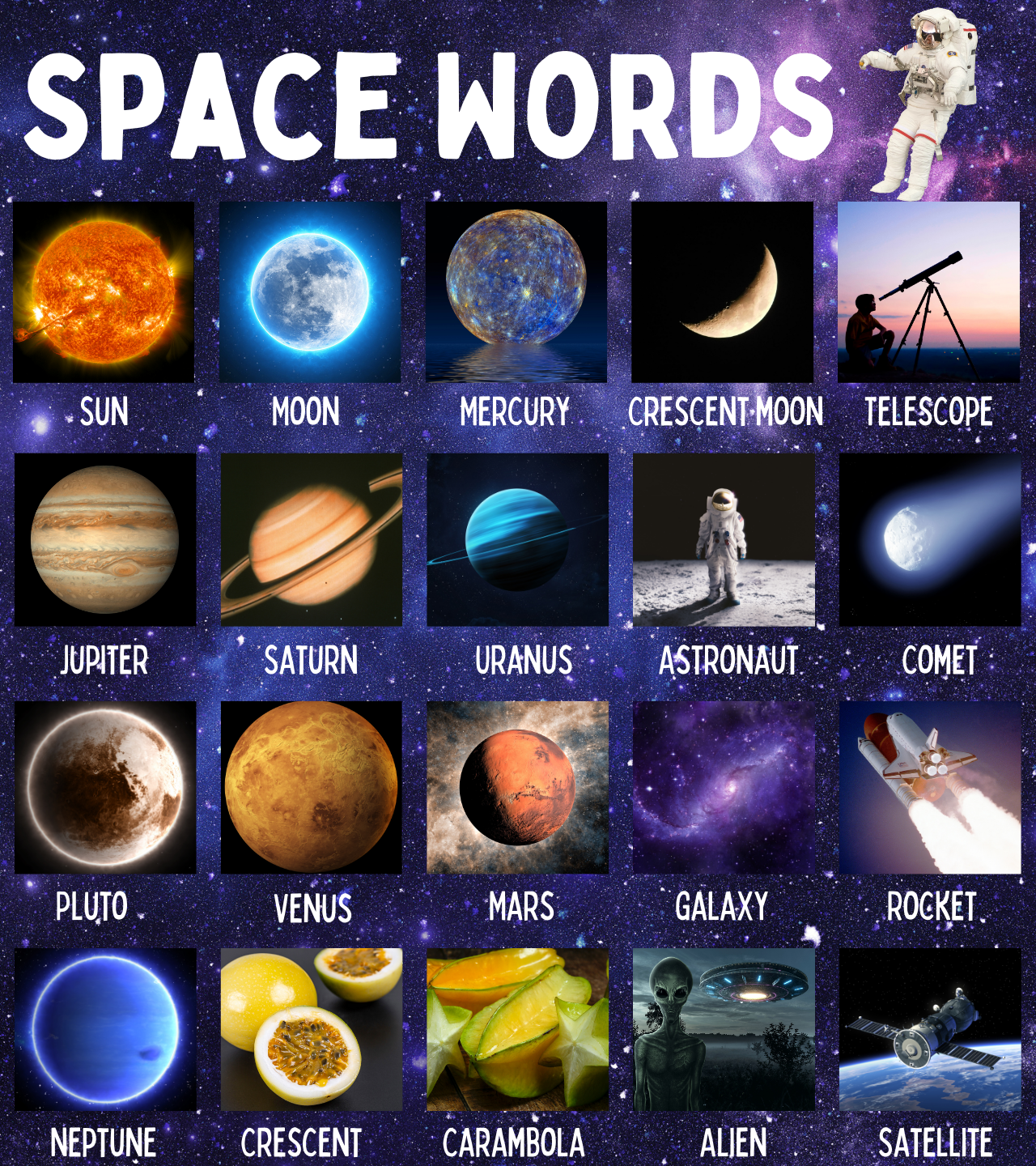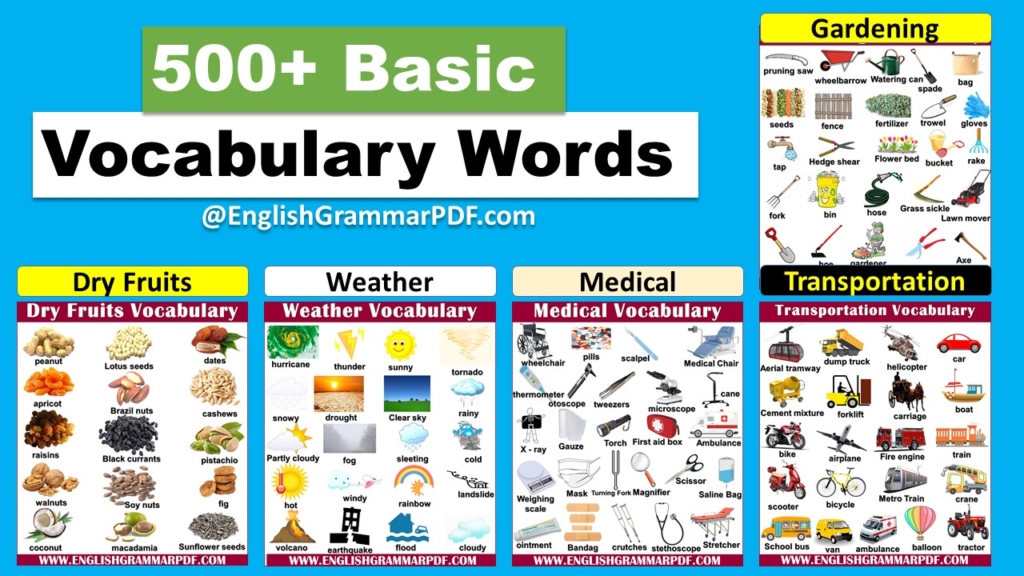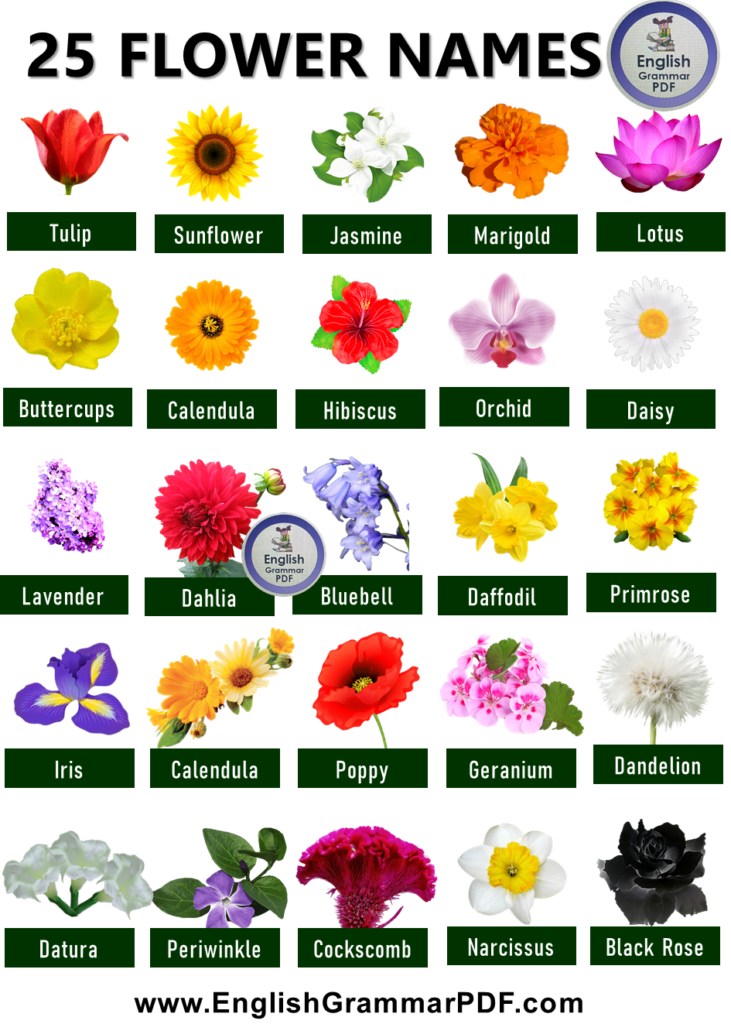Exploring space is like embarking on the most exciting adventure! Imagine soaring beyond the clouds, into the starry sky, where planets, stars, and mysteries await. Our journey today takes us through words that unlock the secrets of the universe. Each word is a door to a new world, and understanding them makes us part of this grand exploration. So, let’s buckle up and prepare for an adventure through space, one word at a time.
Space Words
1. NASA
NASA stands for the National Aeronautics and Space Administration. It’s an American organization that sends rockets and astronauts into space. They study planets, stars, and explore the universe. NASA helps us understand space better.
2. Astronaut
An astronaut is a person trained to travel and work in space. They fly on spacecraft to explore the stars and planets. Astronauts conduct experiments and sometimes even live in space stations. Their job is key to discovering space mysteries.
3. Rocket
A rocket is a vehicle designed to launch into space. It’s powered by engines that push it upward, escaping Earth’s gravity. Rockets carry astronauts, satellites, and scientific equipment. They’re the first step in any space journey.
4. Mars
Mars is known as the Red Planet because of its reddish appearance. It’s the fourth planet from the Sun and a neighbor to Earth. Scientists study Mars to learn about possible life and future human homes. Mars is a fascinating world with mountains, valleys, and possibly water.
5. International Space Station (ISS)
The International Space Station is like a science laboratory in space. Astronauts from around the world live and work there. They study how living in space affects humans and conduct science experiments. The ISS orbits Earth, offering a unique view of our planet.
6. Black hole
A black hole is a point in space where gravity pulls so much that even light cannot escape. It’s formed when a big star collapses. Black holes are mysterious because they’re invisible, but they have a strong pull. Scientists study them to understand the universe’s mysteries.
7. Galaxy
A galaxy is a huge group of stars, gas, and dust bound together by gravity. Our solar system is part of the Milky Way galaxy. Galaxies are like cities of stars, each with its unique shape and size. There are billions of galaxies in the universe.
8. Universe
The universe is everything we can see and everything we can’t, from tiny particles to vast galaxies. It includes all space, time, matter, and energy. The universe is incredibly vast and still expanding. It’s the biggest mystery of all.
9. Satellite
A satellite is an object that orbits around a planet or moon. Natural satellites are moons, while humans make artificial satellites for communication, weather forecasting, and research. Satellites help us understand Earth and space better.
10. Comet
A comet is a ball of ice, dust, and gas that orbits the Sun. When near the Sun, comets heat up and release gases, creating a glowing tail. Comets are like cosmic snowballs, and their appearances in the sky have fascinated humans for centuries.
11. Telescope
A telescope is an instrument that helps us see far away objects in space, like stars, galaxies, and planets. By gathering light, telescopes bring distant worlds closer to our eyes. They are the windows through which we explore the universe.
12. Moon landing
A moon landing is when a spacecraft lands on the moon’s surface. The first successful manned moon landing was by Apollo 11 in 1969. Moon landings help scientists learn about the moon and plan for future space exploration.
13. Solar system
Our solar system includes the Sun, planets, moons, and other celestial bodies like asteroids and comets. The Sun’s gravity holds the solar system together. It’s our cosmic neighborhood, where Earth is just one of many fascinating worlds.
14. Earth
Earth is our home planet, the third from the Sun. It’s unique because it has water and life. Earth is a beautiful blue and green world, with diverse landscapes from forests to deserts. It’s the only place in the universe where we know life exists.
15. Sun
The Sun is the star at the center of our solar system. It’s a massive ball of hot gas that provides light and warmth. The Sun’s energy supports life on Earth and drives our planet’s climate and weather. It’s essential to our existence.
16. Star
A star is a luminous ball of gas, mostly hydrogen and helium, held together by its own gravity. Stars produce light and heat through nuclear reactions in their cores. Our Sun is a star, and there are billions more in the universe.
17. Nebula
A nebula is a giant cloud of dust and gas in space. Nebulae are often the birthplaces of stars. They come in various shapes and colors, depending on their composition and how they interact with nearby stars’ light. Nebulae are like cosmic nurseries.
18. Supernova
A supernova is a massive explosion that happens when a star dies. It’s one of the most energetic events in the universe. Supernovae can outshine entire galaxies and produce elements that make up new stars and planets. They’re crucial to the universe’s life cycle.
19. Exoplanet
An exoplanet is a planet that orbits a star outside our solar system. These planets can vary greatly in size, composition, and temperature. Scientists study exoplanets to learn about the potential for life elsewhere in the universe.
20. Big Bang
The Big Bang is the theory that explains the origin of the universe. It suggests that the universe began as a small, hot, dense point about 13.8 billion years ago and has been expanding ever since. The Big Bang is the start of everything we see in the cosmos.

List of Space Related Words
Here is a list of 100+ space-related vocabulary words:
- Sun
- Moon
- Quarter moon
- Gibbous moon
- Half moon
- Crescent moon
- Full moon
- Mercury
- Venus
- Earth
- Mars
- Jupiter
- Saturn
- Uranus
- Neptune
- Pluto
- Planets
- Stars
- Satellite
- Solar system
- Galaxy
- Orbit
- Comet
- Asteroid
- Astronaut
- Rocket
- Shooting star
- Sky
- Alien
- Eclipse
- Universe
- Black hole
- Constellation
- Ecliptic
- Starlight
- Dwarf planet
- Dwarf star
- Inner planets
- Inferior planets
- Milky Way
- Total eclipse
- Partial eclipse
- Solar wind
- Telescope
- Space station
- Nebula
- Supernova
- Quasar
- Pulsar
- White dwarf
- Red giant
- Space shuttle
- International Space Station (ISS)
- Hubble Space Telescope
- Exoplanet
- Light year
- Asteroid belt
- Kuiper Belt
- Oort Cloud
- Gamma-ray burst
- Space probe
- Voyager spacecraft
- Cassini spacecraft
- Event horizon
- Singularity
- Interstellar
- Interplanetary
- Zero gravity
- Dark matter
- Dark energy
- Gravitational wave
- Big Bang Theory
- Wormhole
- Space-time continuum
- Andromeda Galaxy
- Meteor
- Meteorite
- Meteoroid
- Lunar lander
- Spacewalk
- Gravity assist
- Titan (moon of Saturn)
- Io (moon of Jupiter)
- Europa (moon of Jupiter)
- Ganymede (moon of Jupiter)
- Callisto (moon of Jupiter)
- Enceladus (moon of Saturn)
- Space exploration
- Space colony
- Martian rover
- Lunar rover
- Solar flare
- Solar eclipse
- Lunar eclipse
- Heliosphere
- Magnetosphere
- Aurora Borealis
- Aurora Australis
- Goldilocks zone
- Habitable zone
- Space debris
- Cosmic dust
- Space suit
- Ionosphere


